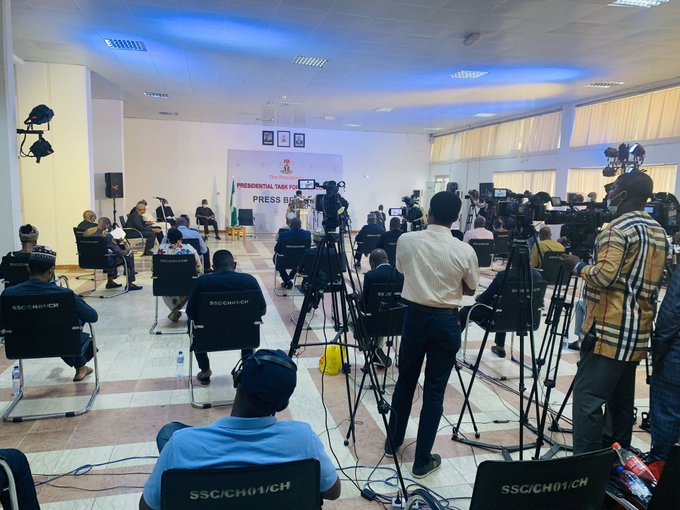Share!
The Nigerian government announced that it now has evidence of community transmission of coronavirus in the country.
The Minister of Health, Osagie Ehanire who disclosed this at a briefing of the Presidential Task Force PTF on COVID-19 in Abuja on Tuesday, said they have traced over 9, 000 persons of interest, most of whom have exhausted their mandatory 14 days of observation period.
Ehanire said: “We have evidence of community transmission already, which reinforces the urgency of physical distancing, use of face masks, particularly where you know you cannot avoid the crowd and also the maintenance of hand and respiratory hygiene as well as strict adherence to measures and regulations as announced by the President on Monday.
Also speaking at the briefing, Director-General of Nigeria Centre for Disease Control, NCDC, Chikwe Iheakwazu, said the agency’s aim was to increase its daily testing capacity to 4,000 but explained that the current challenge was not with testing but with the collection of samples.
The DG said: “We have improved the capacity of the collection centres, both at national and state levels. We now have a capacity to test 1,500 people per day across the network. This capacity is not being fully utilized at the moment.
“So, the challenge right now is not the laboratory testing capacity but how active our public health workforce is in collecting samples, in identifying specific cases, sending the samples to the laboratories for testing.
“We have sufficient capacity to test 1,500 right now and we are not close to exhausting that capacity. But from today, we have to push even harder. Our target, following Mr President’s speech, is to get to 2, 000 samples a day in Lagos, 1, 000 in Abuja and a thousand for the rest of the country.
“This is the target we have agreed and we will push on. The challenge is no longer with the laboratories, at least not now. The challenge is collecting samples from those we have identified as suspect cases.
“The goal of the lockdown from what we know about the virus is not to stop the outbreak because it is unlikely that we can stop this outbreak. But what we are trying to do is to see how we can work effectively, within the context of reopening the economy, check the spread of the virus.
“Our challenge from the public health point of view is to show that we can reopen slowly and maintain a public health response and we have two weeks to do this.’’
He said in four months, Nigeria has activated 12 laboratories, with plans to have at least one in each zone until each state is equipped with one.
At the end, the task force stressed the need for Nigerians to continue to obey all containment protocols put in place by the federal and sub-national governments to further limit the spread of the pandemic.
